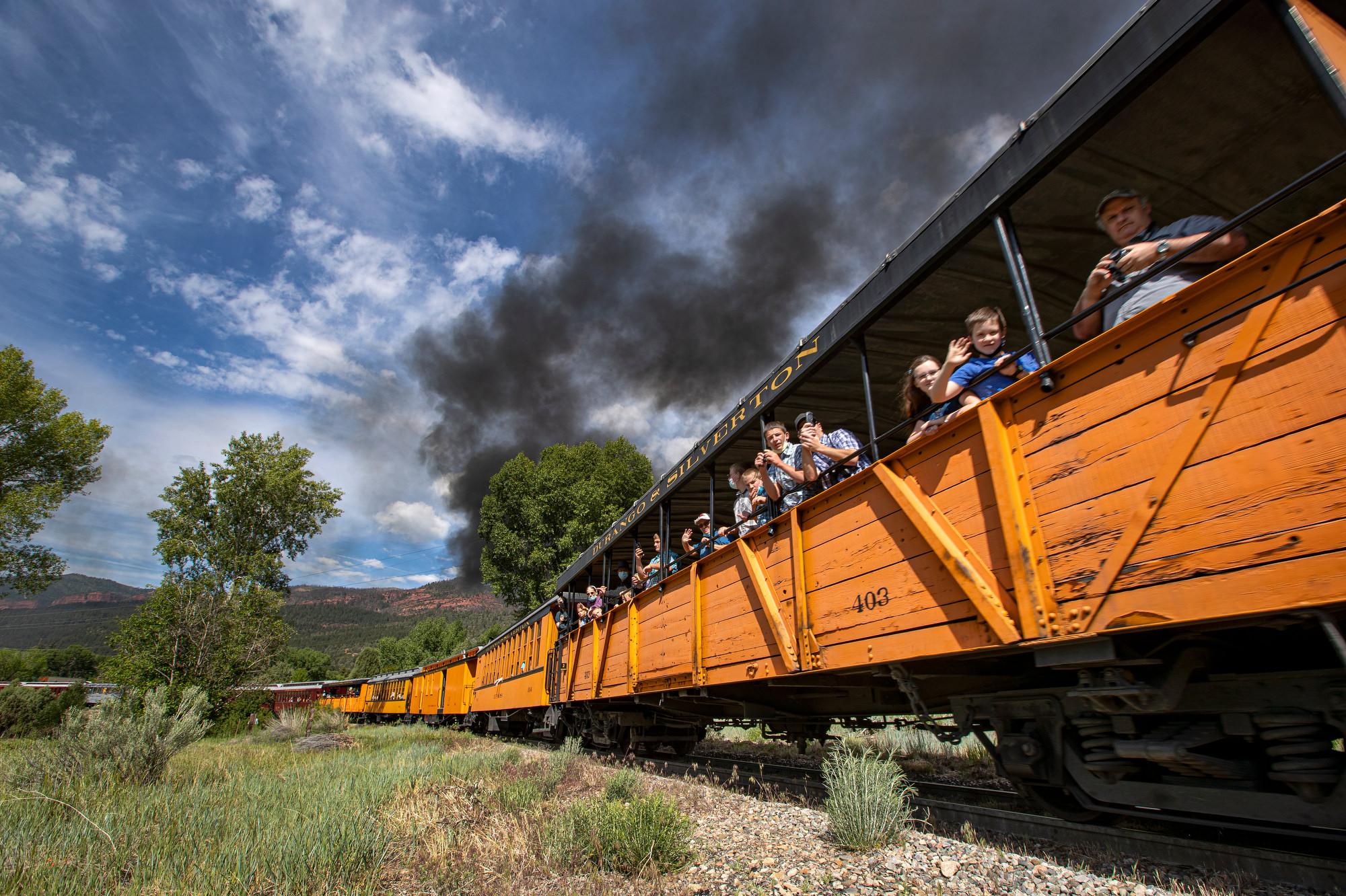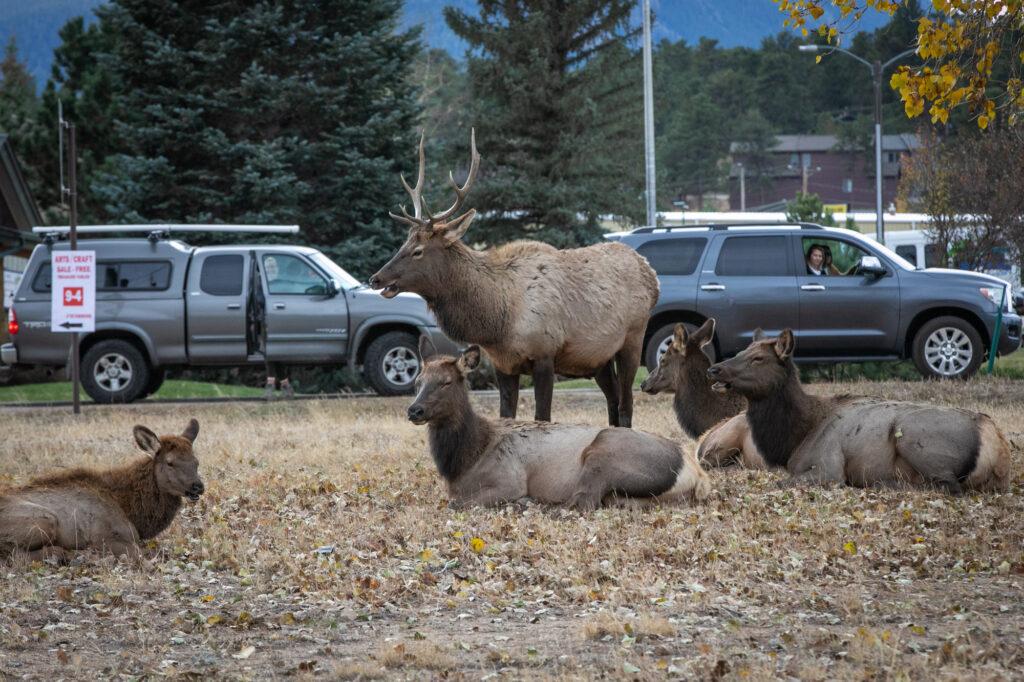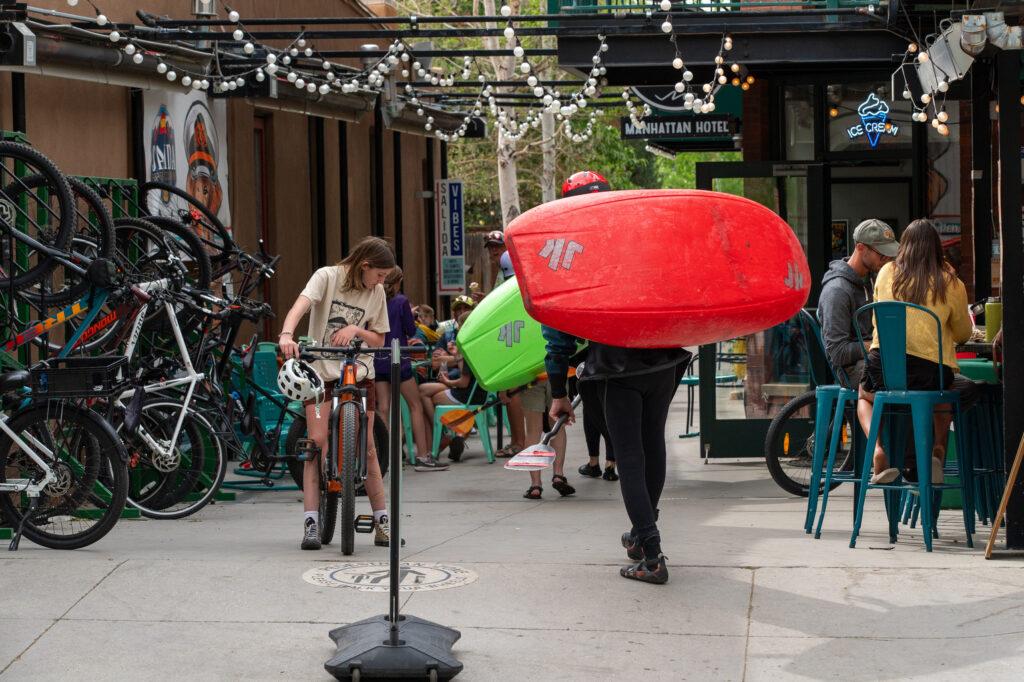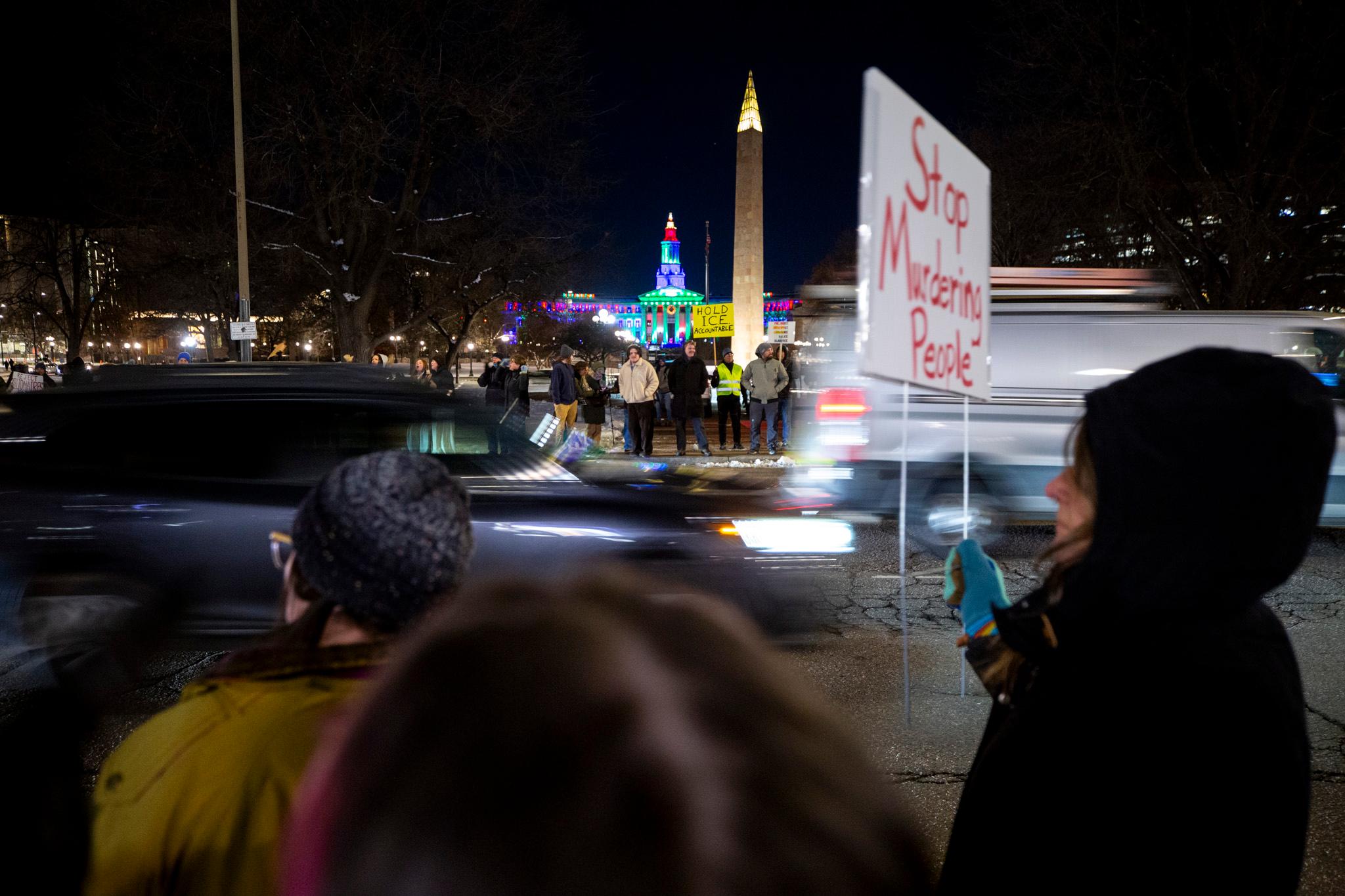
Geopolitical shifts in Washington, D.C., are rippling out to tourism spending in Colorado’s mountain towns.
President Trump’s efforts to reshape global trade, expel migrants and overhaul U.S. relations with longtime allies are alienating overseas travelers, many officials with Colorado’s tourist destinations say. At the same time, U.S. travelers are showing signs of pulling back on vacation budgets as rapid-fire policy changes make it difficult to know where the economy is heading.
The result? Massive unknowns mean less spending and less certainty around town budgets, sales tax revenue and how much communities can rely on dollars from people who live outside their communities.
Summer hotel bookings are swinging month to month depending on the latest political headlines, according to Chris Romer, CEO of the Vail Valley Partnership. Reservations plummeted in April when President Trump announced his sweeping tariff plan, he said. But they bounced back in May when the tariffs were paused.
“It's a little bit of a rollercoaster,” Romer said. “We usually don't see that type of fluctuation ... there's lots of macroeconomic factors at play, be it economic factors or geopolitical factors … and I certainly don't pretend to know how those will influence the market and people's consumer confidence to travel.”
Tourism is big business in Colorado. It supports hundreds of thousands of jobs and fills local and state coffers. In 2023, tourism brought in $1.8 billion in tax revenue for Colorado, according to the most recent data available from the state’s tourism office. With Colorado’s budget already stretched thin, the state can’t afford to let tourism slide.

For now, summer tourism across the state is largely holding up, even though it’s far from booming. The traffic is uneven, with some resort communities showing visitation roughly in line with last year, while others are reporting a decline.
But for most Colorado mountain towns, ski season is the big money maker. That’s where the drop-off in international visitation could really hurt. Places like Vail and Aspen have large contingents of overseas tourists during the winter.
“I think there's a nervous anticipation of what the winter numbers will start to show,” Romer said.
It’s too soon to get a solid read on what hotel bookings will look like six months from now. But summer bookings from Canada, Europe and Mexico are declining at mountain resorts across the U.S., according to DestiMetrics, a lodging data company. The numbers are startling. For instance, bookings from Canada are down 55 percent.
Anecdotally, a pullback in winter booking is already happening. At the Antlers in Vail Village, a vacation rental property, roughly 45 percent of winter business is from overseas guests. They’ve had several recent cancellations, according to Ami Hudgins, the Antlers’ sales and revenue manager.
“We lost three really big reservations for us and it was all due to the Canadians not wanting to spend their money in America,” Hudgins said. “Flat out, when we asked the question, ‘Why are you not coming back after being here for 20-plus years?’ That's the answer.”
The Aspen Chamber Resort Association is strategizing ways to counteract the drop-off in international visitors, according to Eliza Voss, the association’s vice president of destination marketing.
“We do anticipate a drop, or being off pace, for winter visitation, particularly in January,” Voss said. “We are kind of brainstorming with our tourism partners at Snowmass Tourism as well as Aspen Skiing Company [and] Aspen One on what types of promotions and marketing we can do to try and mitigate any shortcomings from international.”

Many Colorado resort communities aren’t reliant on international visitation. But even in places like Breckenridge, which gets most of its visitors from Colorado, Texas and Florida, city budget managers are baking in lower tourism spending to their budgets.
The local tourism organization in Breckenridge is forecasting summer visits to be about 10 percent lower than last year, according to Dave Byrd, the finance director for the town of Breckenridge.
“There's probably a lot more unknowns out there than we've been looking at in the past,” Byrd said. “I’m sure that folks are being a little bit more frugal.”
The town’s finances are still in good shape, according to Byrd. But there are cracks he’s keeping an eye on. For instance, lodging tax revenues were down 7 percent in March and April compared to last year. The decline is likely due in part to people from the Front Range driving out for day trips instead of spending the extra cash to stay overnight, he said.
Hotels are cutting their prices to attract guests, but they’re still not filling up, according to Pam Ness, the revenue manager in Breckenridge. The trend started last spring, well before President Trump was elected to a second term. But the slowdown has gotten more pronounced in recent months.
“It's just been consistently going down,” Ness said.
There’s been a decline in retail sales tax collections as well, according to Ness. That suggests people are spending less on souvenirs in town.
The finance team at Breckenridge is starting to put together the budget for 2026. They’re not taking any chances in this environment.
“We’re going to keep it a conservative view,” Byrd said.
The team is adding a sensitivity analysis to the process this year. That means they’re running the numbers using multiple different scenarios, including across-the-board dips in revenues.
“We’ve got a lot of capital investments we're making. So we need to manage that with the impact of what it could be if some of those things happened,” Byrd said. “We haven't done the ‘what ifs’ before, but we're doing it now.”









